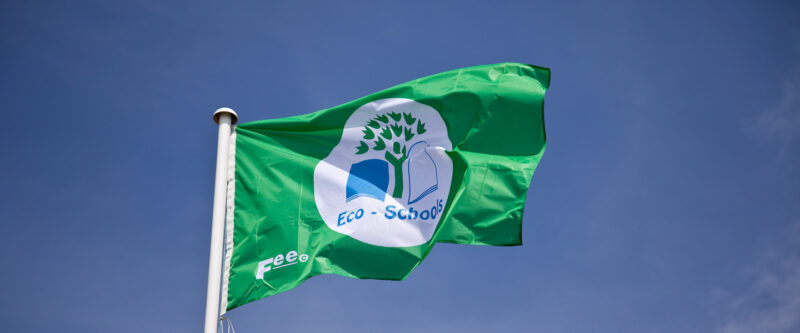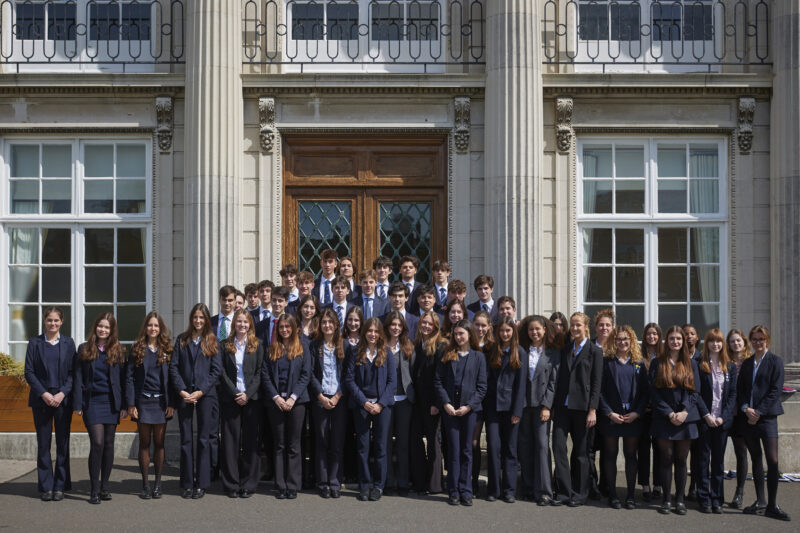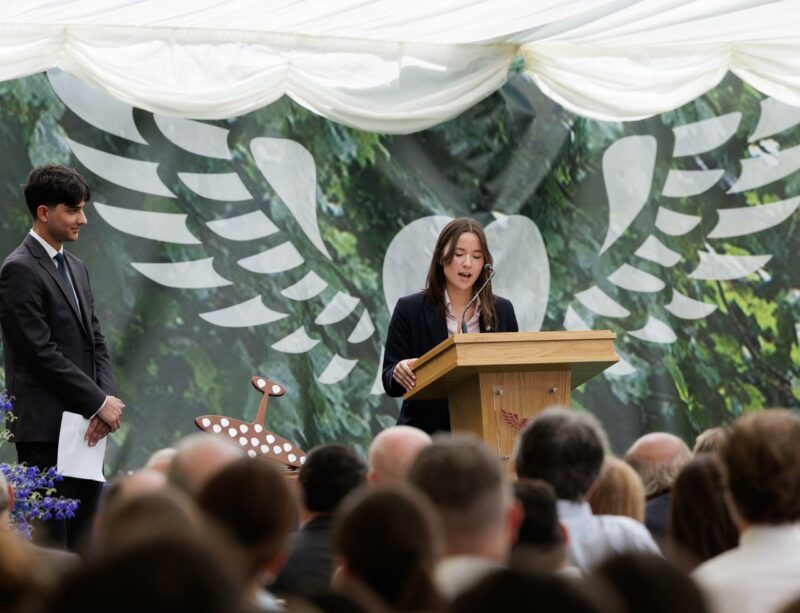This website uses cookies so that we can provide you with the best user experience possible. Cookie information is stored in your browser and performs functions such as recognising you when you return to our website and helping our team to understand which sections of the website you find most interesting and useful.
Assistant editor of The Times gives Attlee lecture
On Tuesday 15 March 2005, Assistant Editor, Chief Leader Writer and Columnist at The Times, Dr Tim Hames, appeared as a guest of the Political Society to give the 16th Attlee Memorial Lecture.
At 5.30pm, Dr Hames, accompanied by our Head of Politics, Mr Michael Perrins, and members of the Political Society Committee, elegantly strolled down the middle of a packed Big School to take their positions for the lecture. Mr Perrins officially opened the event, giving a brief background of former Haileyburian and British Prime Minister Clement Attlee, in whose honour the evening was held.
"Despite Attlee’s relatively quiet five-year period at Haileybury, he always said that the school helped him fashion his ideology and develop the leadership talents he was later to display," said Mr Perrins.
The Political Society’s Honorary Secretary, Jack Marsden (Th), then read the minutes of last year’s Lecture, in which the controversial Claire Short MP spoke of her increasingly distant relationship with the present Prime Minister, Tony Blair.
Dr Hames – an alumnus of Oriel and Nuffield Colleges, Oxford – was then introduced. He had enjoyed Oxford so much that he in fact became a lecturer in Politics at the university. In 1996, Dr Hames entered journalism at one of the highest levels, earning the top job of deputy editor at The Times, where he has remained ever since.
Dr Hames began his lecture with a brief description of his journalistic career. He also gave a brief report on what he knew of former Prime Minister Attlee, in which he stated: "Attlee only bought The Times in the summer when he wanted to read about the cricket or attempt a crossword."
The question he would continue to answer for the remaining 25 minutes of the lecture was: "Does the modern media make political leadership in Britain impossible?" He continued with a quick role-play taken from the first ever television interview with a Prime Minister in 1950, which coincidently happened to be OH Attlee!
Reporter: How is the election going?
Attlee: Very well, very well!
Reporter: Anything else you wish to say?
Attlee: No, not really!
Dr Hames explained how Mr Attlee was never a big fan of the media, so always refused to say anything more than what he thought was necessary. He continued to say that in a modern society media had grown to a rate and scale whereby there are so many forms of it, that the concept is barely escapable. In 2005 we have the Internet, television, radio, newspapers and the latest phenomenon – "blogging". However, politicians put themselves in an awkward position by scaring themselves about the media, and avoiding questions that need to be answered. Dr Hames continued to say that politicians tended to reply in one, or all of the following three ways: "Yes and No", "It depends", and "It doesn’t have anything to do with the point". He furthered his comment by stating that politicians always vastly exaggerated the power of the press.
He also spoke bout how the media actually works. He declared that television usually followed what appeared in the print media first, and that in terms of food this could be equated to comparing a Big Mac to a fillet steak (print being the fillet steak). Therefore television media attacks are far more dangerous than newspaper articles, and more significantly damaging to the person involved.
After a brief but detailed conclusion, Dr Hames opened himself to a series of questions. James Ker-Reid (Th) asked: "Would it be fair to say that the upcoming General Election is a forgone conclusion, with Tony Blair walking back into Downing Street?" Dr Hames, without a pause, replied: "The press see Conservative leader Howard to be a more plausible candidate for Prime Minister; however, in the upcoming election, it doesn’t matter who wins, and perhaps the winner may well be obvious, it is how much they win by."
Iana Shubina (Alb) then asked: "Do you think Tony Blair wants to be President of Europe?" Dr Hames simply replied: "No chance! Even if he wanted to, he would have a hard time convincing people it’s a good idea!"
Numerous other questions followed, covering a range of topics, from questions of leadership to how much influence Rupert Murdoch had on what appeared in The Times!
A vote of thanks from George Warren (Ed) concluded the event, which was followed by a champagne reception in the Attlee Room.
The evening turned out to be a great success and I think it goes without saying that we would definitely welcome back Dr Hames to talk to us again!
Christopher Winsley (Ed)




